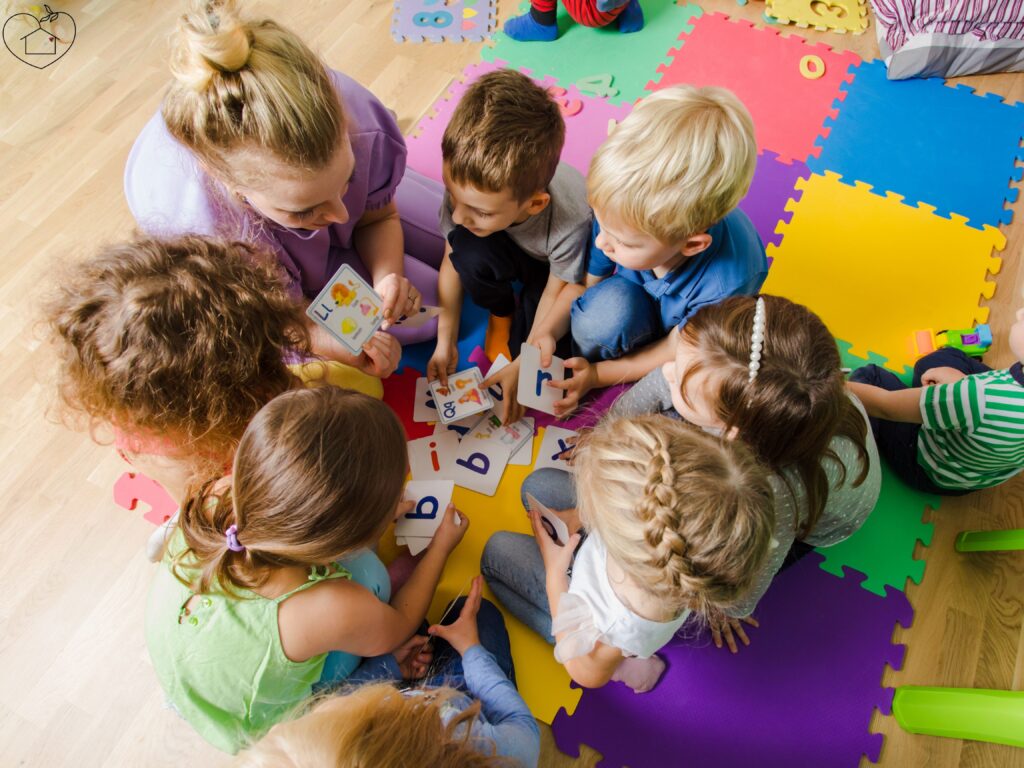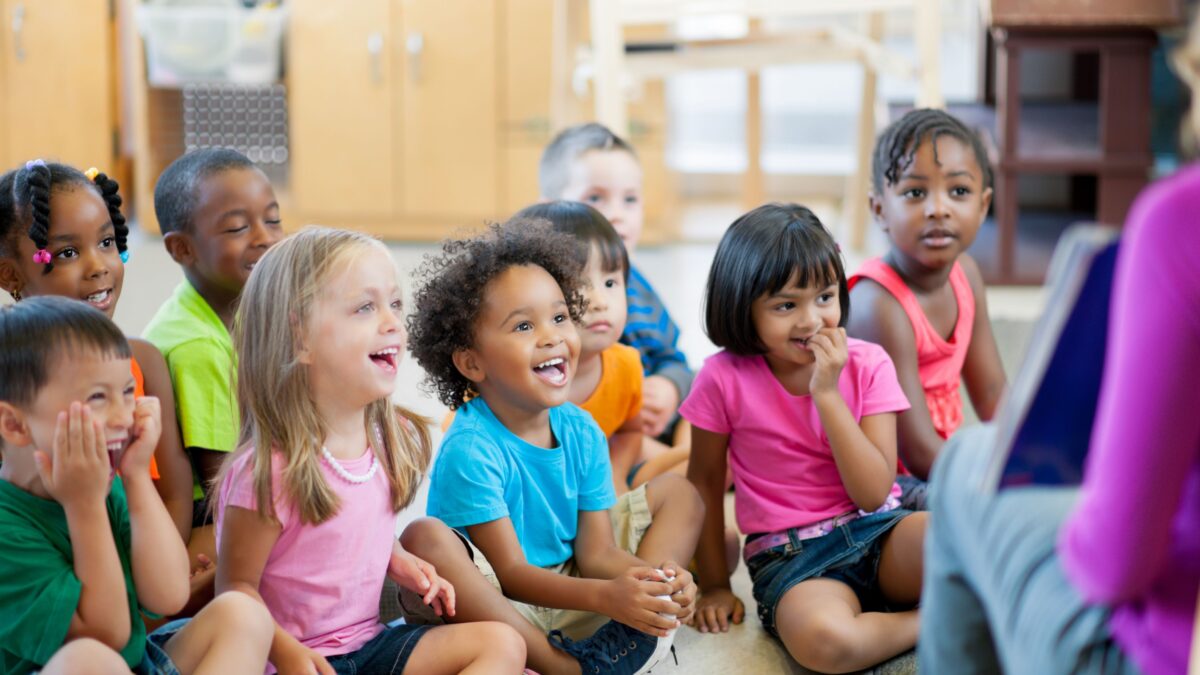For many parents, comprehending what age is preschool and kindergarten can be essential for planning their child’s early education. Typically, preschool begins around ages 3 to 4, and kindergarten usually starts at age 5. Both stages play crucial roles in shaping a child’s development and preparing them for social, emotional, and academic success. This article will examine the benefits of preschool and kindergarten, the psychological wisdom behind these stages, and friendly advice on determining the best age for each.
Table of Contents
ToggleBenefits of Preschool and Kindergarten
Preschool and kindergarten provide environments where children can play and learn in ways that prepare them for school and life. Here are some of the core benefits:
1. Social and Emotional Development
Both preschool and kindergarten help children build social skills like cooperation, sharing, and problem-solving. In these environments, children learn to express their emotions constructively, empathize with others, and handle basic conflicts.
Example: In a preschool setting, children might be involved in group play, learning to take turns and communicate with friends. By the time they reach kindergarten, these social skills deepen, promoting friendships and cooperation in group activities.
2. Cognitive and Language Development
Early education supports cognitive growth by introducing activities that build memory, language, and problem-solving abilities. Preschoolers learn through play-based activities, while kindergarten students are introduced to more structured learning, which improves cognitive skills.
Example: A preschool class may concentrate on recognizing shapes, colors, and letters, while kindergarten introduces activities like phonics and counting, laying the groundwork for reading and math skills.
3. Physical Development
Both preschool and kindergarten emphasize physical activity, helping children develop fine and gross motor skills. Through play, crafts, and physical education, children build the muscle control and coordination essential for more complicated physical tasks.
Example: Activities like cutting paper, drawing, and stacking blocks in preschool strengthen fine motor skills, while kindergarten activities like climbing and skipping improve gross motor skills.
4. Learning Routines and Structure
Preschool introduces children to basic routines, like snack time and circle time, which helps them feel secure in a structured environment. Kindergarten takes these routines a step further, preparing children for school days with a set schedule, developing patience, and increasing their attention spans.
Example: In preschool, children learn to transition smoothly between activities, such as moving from playtime to snack time. Kindergarten builds on this by incorporating more extended periods of structured learning, preparing them for the school day.
5. Boosting Confidence and Independence
Both preschool and kindergarten promote a sense of confidence and independence. Children gain self-reliance as they learn to complete tasks, express their opinions, and solve simple problems on their own.
Example: Preschoolers might take pride in completing a simple puzzle independently, while kindergarten students learn responsibility through small tasks, like putting away their supplies or following classroom rules.
Psychological Wisdom in Early Education
From a psychological perspective, preschool and kindergarten are crucial for establishing attachment, emotional regulation, and social relationships. Developmental psychologists like Jean Piaget emphasize that children between ages 3 to 5 are in the preoperational stage, where they begin to use symbolic thinking, language, and imagination. During this stage, play is essential as it allows children to find concepts and emotions in a safe, creative way.
Erik Erikson’s psychosocial theory identifies this age as the “initiative vs. guilt” stage, where children strive to take control of their environment and act independently. Early education provides a safe environment for them to build initiative, gain confidence, and learn through exploration without fear of failure. Preschool and kindergarten also help build secure attachment, promoting positive relationships with teachers and peers that support their emotional and social development.
Advice on What Age Preschool and Kindergarten
1. Consider Preschool Around Ages 3 to 4
Many preschools accept children around age 3 when they are ready to interact with others and immerse in group play. Preschool is a wonderful opportunity for children to begin developing social skills, independence, and familiarity with a learning environment.
Example: If your child enjoys interacting with others, shows curiosity, and can handle short periods of separation, they may be ready for preschool. It’s a gentle transition that introduces them to structured play and simple routines.
2. Kindergarten Typically Begins at Age 5
Kindergarten is usually designed for children around age 5, aligning with their readiness for more structured learning. At this stage, children are better equipped to handle longer attention spans, follow instructions, and begin basic academic activities.
Example: If your child can sit for storytime, follow multi-step instructions, and show interest in learning letters or numbers, they’re likely ready for kindergarten. This age provides the right balance of cognitive and social readiness.

3. Assess Individual Readiness Beyond Age
While age is a general guideline, individual readiness varies. Observe your child’s behavior, temperament, and comfort level in group settings. Some children may be ready for preschool or kindergarten earlier or later, depending on their personality and developmental pace.
Example: A child who is naturally curious and eager to learn may be ready for preschool closer to age 3, while a child who needs more time to warm up to new environments may benefit from waiting until age 4.
4. Trust Your Instincts and Your Child’s Cues
Every child develops at their own pace, so trust your instincts as a parent. If your child expresses excitement about meeting new friends, learning, or attending school, it’s likely they’re ready for the experience. Watch for signs of curiosity, independence, and readiness to work with others.
Example: If your child shows excitement when visiting a classroom, asks questions about school, or seems eager to interact with other children, these are positive signs of readiness for preschool or kindergarten.
5. Gradual Transition and Social Preparation
To ease the transition into preschool or kindergarten, consider playdates, short group activities, or story times at the library to help your child practice socializing in a group. Building familiarity with other children helps boost their confidence.
Example: Taking your child to a few library story times or community events with other children can help them get comfortable with group settings and social interactions before starting preschool.
6. Concentrate on Emotional and Social Skills
Rather than academic readiness, concentrate on your child’s emotional and social skills. Preschool and kindergarten prioritize these skills, which lay the foundation for a positive learning experience. Children who can express their feelings and handle social situations are well-prepared for early education.
Example: If your child can communicate basic needs, share toys, and show some patience, these skills are strong indicators that they are ready for preschool or kindergarten.
7. Visit Schools and Ask Questions
Visiting prospective schools and observing classrooms can help you gauge the environment and see how your child responds. Ask about routines, activities, and how teachers support young children’s emotional needs.
Example: During a school visit, observe how children interact and how teachers manage group play. This visit gives wisdom into whether the school’s approach aligns with your child’s temperament.
8. Prepare Your Child Through Fun Learning Activities
To help your child feel ready, immerse them in activities that mirror what they’ll experience in school. Simple activities like sorting objects, recognizing colors, and reading stories together create a foundation for preschool and kindergarten learning.
Example: Try playing games that involve taking turns or completing small tasks together. These activities teach cooperation and introduce structure in a fun, hiring way.
Preschool and kindergarten are exciting times of growth and exploration, giving children a foundation for lifelong learning and socialization. By concentrating on age readiness, emotional preparation, and positive social experiences, you can help your child enjoy these early educational years with confidence and curiosity.
Watch and Read!
- “The Importance of Being Little: What Preschoolers Really Need from Grownups” by Erika Christakis
- “The Whole-Brain Child” by Daniel J. Siegel and Tina Payne Bryson
- “How to Talk So Little Kids Will Listen” by Joanna Faber and Julie King
- “Inside Out” (2015)
- “Mr. Holland’s Opus” (1995)
- “Finding Nemo” (2003)
FAQ
Most children start preschool between ages 3 and 4, depending on their social readiness and comfort with group play. Some programs accept children as young as 2.5 years old, but many parents wait until age 3 for a smoother transition.
In many places, kindergarten is optional but highly recommended to help children build foundational skills for school. By age 6, formal education becomes mandatory in most regions, with kindergarten serving as a beneficial preparatory year.
Basic skills, such as recognizing their name, comprehending simple instructions, and practicing social behaviors like sharing, are helpful. Academic skills, like counting to 10 or identifying some letters, can be beneficial but are not typically required.

